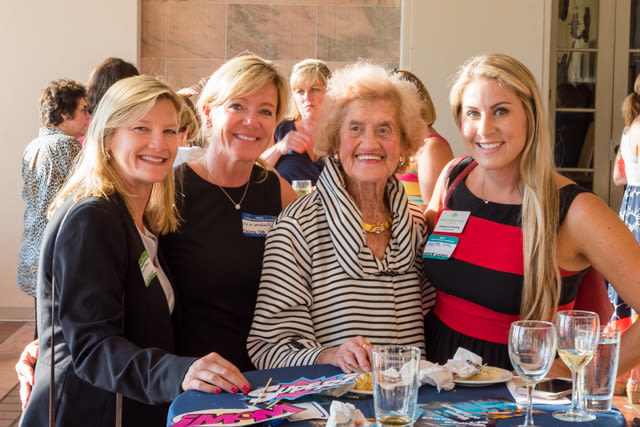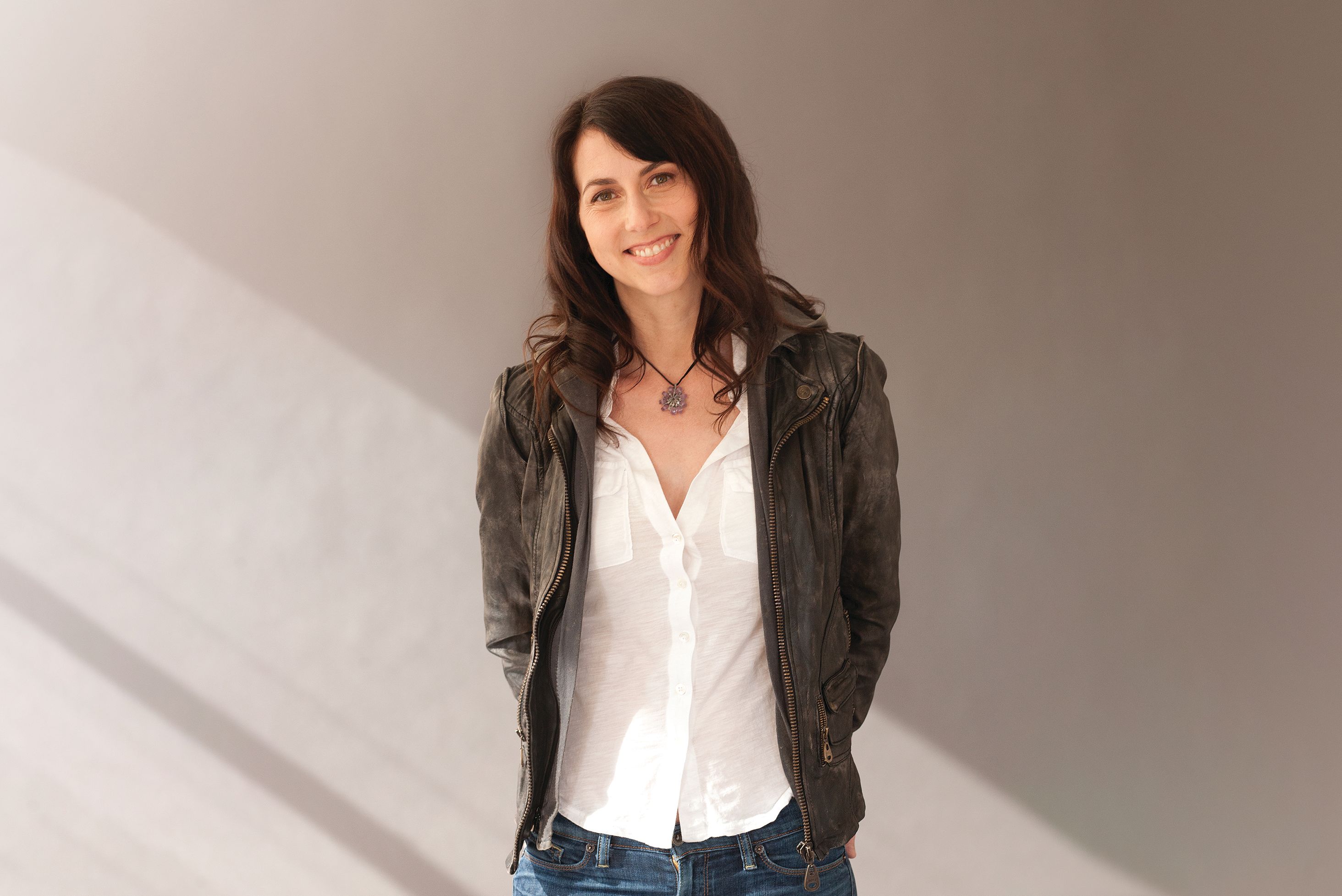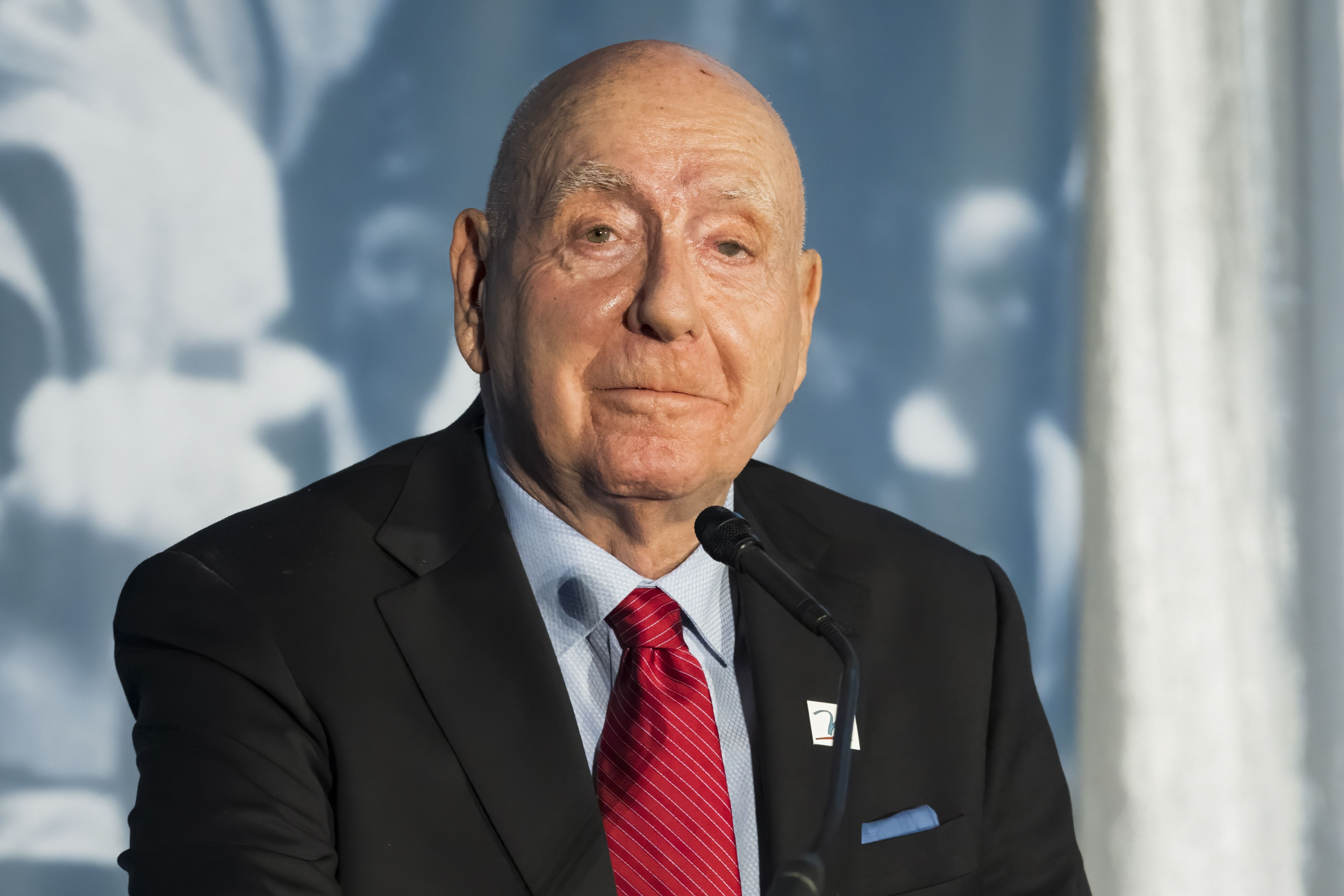Remembering Betty Schoenbaum

Betty Schoenbaum in 2017 at our Women of Influence celebration.
Image: Atelier Media
Editor's note: Betty Schoenbaum passed away at 100 years old on July 31, 2018.
The party no one wants to miss this fall is the Betty Schoenbaum tribute on Nov. 6 at the Hyatt, for the Glasser-Schoenbaum Human Services Center. Not that it’s going to be so fancy—it’s not black-tie—but because it promises social drama, a great life story, and a lot of emotion. Betty is a lesson to us all, and if you’re wondering what to do with all the money you’ve amassed during your climb to the top, be sure and bring a pencil and take some notes.
Betty has lived several different lives in her 94 years. She was born during World War I (“I kept my daddy from being drafted”) to a prosperous family in Dayton, Ohio. “I had the greatest parents,” she recalls. Her father was in the poultry business, and life was pleasant and sheltered. “I never knew we had a Depression,” she says.
Her earliest ambition was to become a professional dancer. Alas, she grew up to be too tall (5 feet, 8 ½ inches), but her sister went on to appear on Broadway in the Ziegfeld Follies, while Betty had to settle for being captain of the girls’ basketball team.
She went on to Ohio State, and on her very first day, at a mixer for the Jewish students, she met a big, good-looking guy named Alex Schoenbaum. He was a poor boy from West Virginia, and she found him rather rude. But he was a football hero—and how many Jewish boys are football heroes? They began dating.
Betty is the first to admit that she lived in her husband’s shadow. But it was a very big shadow. After World War II, he was running his father’s bowling alley in Charleston, W.V., and it seems there was an empty lot next door. Alex got the idea to build a drive-in restaurant; and the Parkette, as it was known, was a hit from the beginning. A big part of its success was the family atmosphere. “We had a policeman in the parking lot,” Betty explains. Back in those days, restaurants next door to bowling alleys didn’t always have the best reputations.
The Parkette grew into the Shoney’s chain of more than 1,000 restaurants and motels. At its heyday in the 1990s, it was my favorite roadside attraction. Whenever I went on vacation, I pretty much traveled from Shoney’s to Shoney’s. They had a spectacular buffet for around $10. I can still remember the French toast, the meat loaf, the strawberry pie. . . It finally got to the point where I had to force myself not to go to Shoney’s. In fact, the more I think about it, that’s when my struggles with weight began—right in a booth at Shoney’s.
Not that I’m blaming Betty. She let Alex run the business, and she raised the family—four kids, the youngest born when she was 48. (She was one of the oldest women to ever give birth in West Virginia.) But when Alex died and the business was sold, she was left in charge of all that money—millions of dollars in various charitable foundations that had to distributed wisely. She suddenly found herself a philanthropist.
Luckily, she turned out to be very good at the job. She studied all the organizations, paying careful attention to how much actually went for programs as opposed to administration and salaries. And while she is generous with the arts, her first priority became early education and social services. Building self-esteem in young people is crucial, she believes.
Her latest adventure is almost biblical in scope. She recently donated $5 million to aid in the settlement of Ethiopian Jews, or Beta Israel, as they are known. Considered one of the Ten Lost Tribes, they emigrated to Egypt after the destruction of the First Temple by the Babylonians. They supported Cleopatra in her war against Augustus Caesar, and when she lost, moved on to Ethiopia, where they have been part of the history of the country for more than 2,000 years.
As you can imagine, being Jewish in Ethiopia has been difficult. As Betty puts it, “Keeping kosher in the jungle is not easy.” But the ancient customs and forms of worship have survived to a surprising extent. Though people have always known of this group’s existence—Marco Polo wrote about them—it wasn’t until the turn of the last century that they began to play a part in world Judaism. The chief rabbis declared them officially Jewish, and more recently, DNA testing has confirmed this. And when Ethiopia’s famine and political troubles reached drastic proportions in the 1980s, it was decided to relocate them to Israel under the Law of Return.
The emigration of 120,000 dark-skinned Ethiopians to Israel has been understandably difficult, and that’s where Betty comes in. Believing that education and sports are the best way to integrate children into a society, she’s paying for a soccer field, an aquatic sports center, tennis and basketball courts, a cultural center and a science center. When she journeyed to Israel to see her gift come to life, she was treated like a celebrity. She’s come a long way from tap dance lessons in Dayton, Ohio.
Age is slowing her down, but just a tiny bit. She gave up tap at age 90, but she still walks for exercise. “I walk in my condo. Luckily, it’s big,” she says. She loves to go out to eat and has a weakness for mint chocolate chip ice cream. She dresses in her Buckeye outfit to watch the Ohio State games. And she credits much of her success to her daily breakfast: “Apple juice, and a peanut butter and banana sandwich on cinnamon raisin bread. I get it at Walmart.”
Betty’s party will benefit the Glasser-Schoenbaum Social Services Center on 17th Street. It’s a sort of campus for 18 groups that provide all sorts of services, from legal aid to children’s healthcare. The event is called “A Big Hug Back to Betty,” and everybody in town will be there. Betty, hopefully, will be available for hugs. The line forms on the left.



